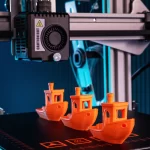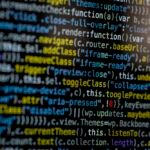Quantum Computing
/ /
In the realm of computing, a revolutionary technology is emerging that has the potential to transform various industries and revolutionize problem-solving capabilities. Quantum computing, harnessing the principles of quantum mechanics, offers the promise of immense computational power and the ability to solve complex problems that are beyond the reach of classical computers. In this blog, we will delve into the world of quantum computing, exploring its fundamentals, potential applications, and the current state of research and development.
- Understanding Quantum Computing: Quantum computing is a paradigm shift from classical computing, which relies on bits to represent information as either a 0 or a 1. In contrast, quantum computing uses quantum bits or qubits, which can exist in superposition, representing both 0 and 1 simultaneously. This superposition property, along with entanglement and quantum interference, allows quantum computers to perform computations in parallel and potentially solve certain problems exponentially faster than classical computers.
- Quantum Computing Principles: a) Superposition: Qubits can exist in a superposition of states, representing multiple possibilities simultaneously. This property enables quantum computers to perform calculations in parallel and explore a vast number of potential solutions simultaneously. b) Entanglement: Entanglement is a phenomenon where qubits become correlated, even when physically separated. Changes to one entangled qubit instantly affect the others, regardless of distance. This property enables quantum computers to perform highly interconnected computations and solve problems collectively. c) Quantum Interference: Quantum interference is the constructive or destructive interference of quantum states. It allows quantum computers to manipulate and combine qubit states to enhance desirable outcomes and suppress undesirable ones.
- Potential Applications of Quantum Computing: a) Optimization Problems: Quantum computing has the potential to solve complex optimization problems, such as route optimization, portfolio optimization, and supply chain management, by quickly evaluating multiple possibilities and finding the most optimal solutions. b) Cryptography and Security: Quantum computers can potentially break many of the cryptographic algorithms used today, necessitating the development of quantum-resistant encryption methods. However, quantum computing also offers the potential to develop secure quantum communication protocols. c) Drug Discovery and Material Science: Quantum computing can accelerate the discovery of new drugs and materials by simulating molecular interactions, understanding chemical reactions, and predicting properties with higher accuracy. d) Machine Learning and Artificial Intelligence: Quantum machine learning algorithms can leverage quantum computers’ parallel processing capabilities to analyze large datasets and enhance pattern recognition, optimization, and data clustering tasks. e) Financial Modeling: Quantum computing can enable more accurate and sophisticated financial modeling, risk analysis, and portfolio optimization, potentially leading to more effective investment strategies.
- Current State of Quantum Computing: a) Quantum Hardware: Building reliable and scalable quantum hardware is a significant challenge. Quantum processors are prone to errors caused by decoherence and environmental noise. Researchers are actively working on developing error-correcting codes and improving qubit coherence times to address these challenges. b) Quantum Algorithms: Researchers are developing quantum algorithms and exploring their applications across various fields. Algorithms such as Shor’s algorithm for factoring large numbers and Grover’s algorithm for database search demonstrate the potential power of quantum computing. c) Quantum Supremacy: Quantum supremacy refers to the point at which a quantum computer can perform a calculation that is beyond the capabilities of any classical computer. In 2019, Google claimed to achieve quantum supremacy by solving a specific problem in minutes that would take classical computers thousands of years.
- Challenges and Future Outlook: a) Scalability: Building large-scale, fault-tolerant quantum computers remains a significant challenge. Overcoming the limitations of qubit coherence, error rates, and interconnections is crucial for the practical implementation of quantum computing. b) Algorithms and Software: Developing quantum algorithms, programming languages
Posted in Blogs


































